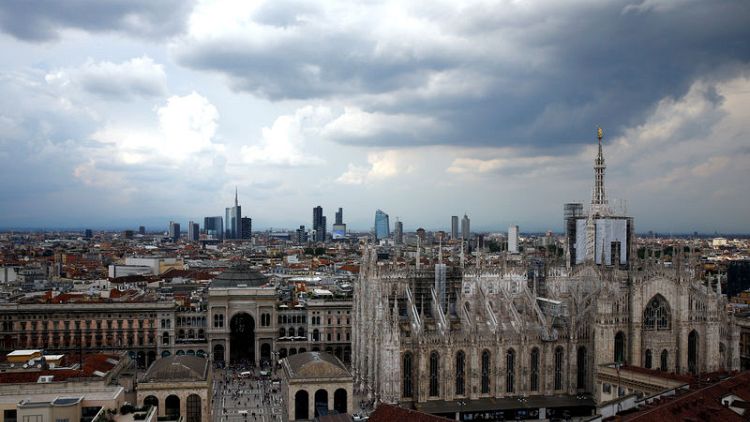BRUSSELS (Reuters) - Euro zone economic growth is set to slow more than expected as the bloc's manufacturing crisis could spill over to the larger services sector under protracted global trade tensions, the International Monetary Fund said on Wednesday.
The IMF said the 19-country euro zone would grow by 1.2% this year, revising down its earlier estimates from April of 1.3% growth for the bloc. That is a significant slowdown compared to last year's 1.9% expansion.
The bloc's economy would grow by 1.4% in 2020 and 2021, the IMF said, cutting its previous estimate of 1.5% growth in both years.
The slowdown is mostly due to anaemic growth in Germany, the euro zone's largest economy, and stagnation in Italy, the third-biggest, the fund said, revising down its earlier forecasts for both countries.
Germany is now expected to grow by only 0.5% this year, slower than the 0.8% the IMF had predicted in April. That would be one-third of 2018 growth.
The IMF also cut its growth forecast for France, the bloc's second-largest economy, despite better-than-expected output estimates for the third quarter released last week. The country is now expected to grow by 1.2% this year, instead of the 1.3% previously forecast.
To counter the slowdown, the fund reiterated its call for a "synchronised fiscal response" by euro zone governments, in a clear message to Berlin to invest more.
It said the slowdown, so far mostly caused by the impact of global trade tensions on the bloc's export-driven industry, could spill over to services, the largest economic sector in the euro zone.
Britain's process to leave the European Union was also a cause of concern, with a no-deal Brexit causing vast negative effects on both Britain and the EU.
In the event of an orderly Brexit, which could occur by the end of January, the IMF confirmed its earlier estimates that Britain's economy would grow by 1.2% this year and 1.4% next. Growth was 1.4% in 2018.
Inflation in the bloc is expected by the IMF to be 1.2% this year, 1.4% next and 1.5% in 2021, short of the European Central Bank's target of a rate close but below 2%.
(Reporting by Francesco Guarascio @fraguarascio; Editing by Catherine Evans)



